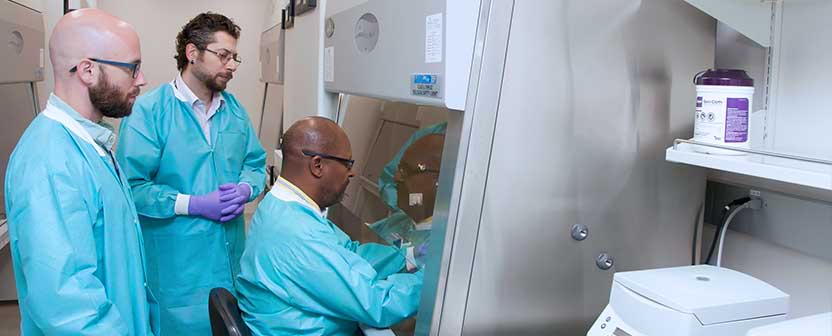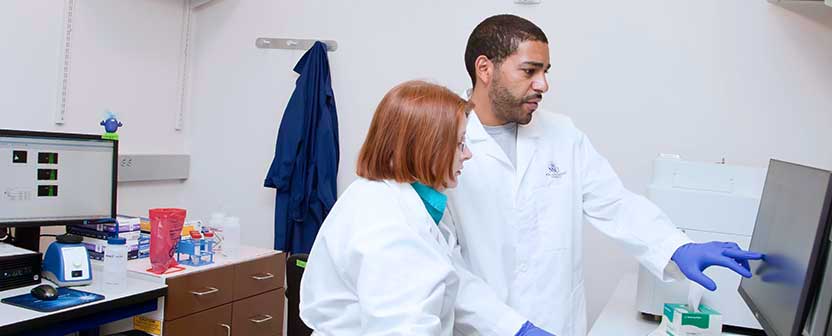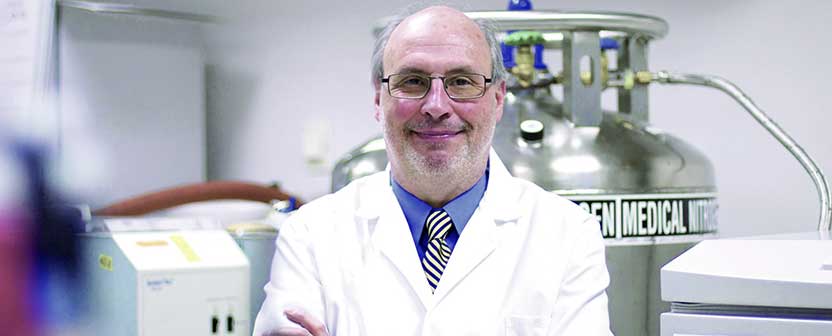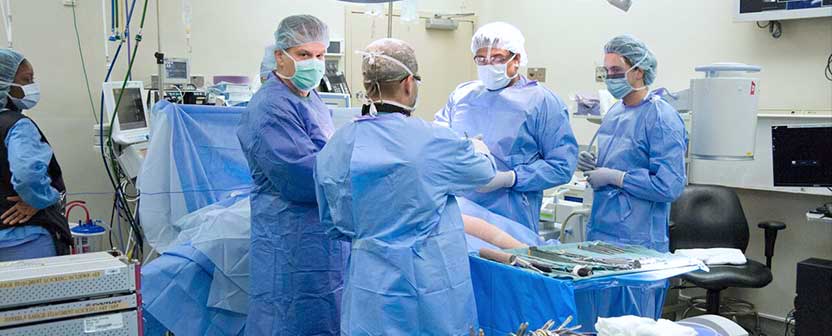NSU Global Research Team Tackles Pediatric Cancer
Researchers around the world are investigating ways to effectively train immune cells, including natural killer (NK) cells, to target specific types of tumors. NK cells represent a form of immunotherapy that is potentially a less toxic and more effective way to combat tumor cells than current standard cancer treatment protocols, which heavily rely on chemotherapy and radiation. There is a lack of private research funding investment in this promising area of study due to the lag time involved in translating these discoveries from the bench to bedside. Academia is stepping up to fill this much-needed void.
The Nova Southeastern University (NSU) Cell Therapy Institute led by accomplished cancer researcher Richard Jove, Ph.D., is actively collaborating with scientists from the world-renowned Karolinska Institutet (KI) in Sweden, home of the scientists who discovered NK cells, to develop a full-circle investigative process to expedite discoveries. The research team is led by KI’s Evren Alici, M.D., Ph.D. and H. Thomas Temple, M.D., NSU’s senior vice president for division of research and economic development. They are initially focusing on pediatric sarcomas, which receive less research funding than more common forms of cancer. The goal is to take these discoveries and ultimately transfer them to develop durable cures for various other forms of cancer.
The research team has developed a process in which sarcoma tissues that would normally be incinerated following surgical removal are being repurposed for scientific investigation. The tissues are taken directly to NSU’s Cell Therapy Core immediately after surgical removal by Dr. Temple, who, in addition to leading NSU’s research endeavor, is a well-respected orthopedic oncology surgeon. From there, a scientific team led by Adil Duru, Ph.D., isolates cells and is able to send them directly to the university’s other core facilities for sequencing, genomic modification and analysis, imaging and testing.
NSU is also using these cells to create an expanded tumor library for further research, through collaboration with the NSU AutoNation Institute for Breast and Solid Tumor Cancer Research, which focuses on how DNA damage and defects in DNA repair contribute to cancer. This research is being led by Jean Latimer, Ph.D., AutoNation Institute director and professor in the NSU College of Pharmacy. Lines from this library are available for purchase and partnership opportunities for researchers seeking an expanded resource to conduct pharmaceutical and genetic research.
Partner With Us: To learn how you and your organization can partner with NSU on this and other innovative and marketable technologies, contact Gary Margules, Sc.D., NSU vice president of research and technology transfer, at margules@nova.edu or (954) 262-7507.



